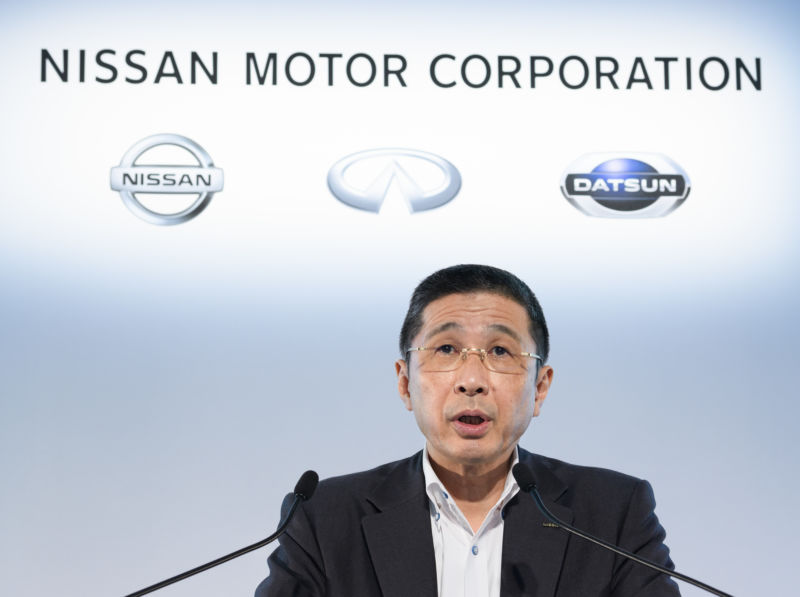
Nissan says it will reduce global headcount by 12,500 people over the next three years after a brutal quarter that saw net income fall by 95% year over year.
Automakers around the world have been struggling in recent months. Ford said earlier this year that it would cut 12,000 jobs in Europe, while General Motors has announced plans to eliminate thousands of jobs in a series of cuts.
Nissan has been having a particularly rough year. Then-Chairman Carlos Ghosn was arrested in November 2018 on corruption charges, creating a massive distraction for the company. Nissan has a complex set of financial relationships with Renault and Mitsubishi that make management of the company more complicated. Since Ghosn's dismissal from Nissan's board, CEO Hiroto Saikawa has struggled to turn the automaker's fortunes around.
Those struggles were evident in Nissan's latest financial results, which cover the April-to-June period. Nissan's revenues fell 13% from a year earlier, while operating profit fell more than 98%. Nissan had a dismal 0.1% operating margin.
Saikawa believes that Nissan's fundamental problem is an excess of manufacturing capacity. The company is aiming to reduce its global production capacity by 10% by 2022. Nissan also plans to "reduce the size of its product lineup by at least 10 percent"—which presumably means eliminating some of Nissan's less-successful models.
Nissan had announced plans to cut 4,800 jobs earlier this year, but the company upped the number to 10,000 earlier this week, and now to 12,500. Saikawa said most of the job cuts will be auto plant workers, CBS reports.
reader comments
236